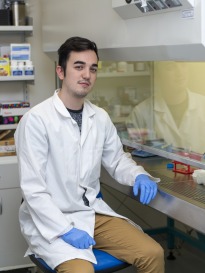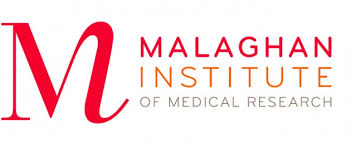Tuesday 23 July 2019 at 6pm

EIT Taradale, Lecture Theatre 1
Joshua Lange, PhD Candidate, Malaghan Institute
“Gold coin plus” donations for the benefit of the Malaghan Institute
The human immune system is a complex network of cells and processes that is able to protect us against a wide array of diseases. When our immune system fails, our body can succumb to infections, auto-immune diseases and cancerous malignancies. Our work at the Malaghan Institute combines the use of world-class biotechnology and a community of scientists from all around the world to investigate the mechanisms that drive our immune system and how we can re-engineer it to overcome life-threatening diseases.
This lecture will be given by one of the Malaghan Institute’s PhD students, Hawke’s Bay born and bred Joshua Lange.
Joshua will give an overview on the fundamentals of immunotherapy and how
researchers are using it to re-empower a patient’s own immune system to fight off cancer.
He will also discuss the work surrounding a new major clinical trial at the Malaghan Institute
in close collaboration with the Guangzhou Institute of Biomedicine. This study is trialling
Chimeric Antigen Receptor T cell therapy (CAR T cells) in New Zealanders with B cell
lymphoma, which will be the first time this technology is able to be used in New Zealand.
Joshua received his Bachelor of Science with Honours in 2015 from the University of Otago, working on infectious disease. Since 2016, he has been a PhD candidate at the Malaghan Institute of Medical Research in Wellington as part of the Cancer Immunotherapy Programme. His research focuses on the development of novel vaccine constructs to drive immune responses to cancer. In close collaboration with the Ferrier Research Institute, these cancer vaccines have been shown to be able to modulate immune cells so that they better recognize and target cancer cells.
In 1966 a group of far-sighted New Zealanders set a course for world-class independent medical research to be carried out right here. In 2016, the Malaghan Institute celebrated 50 years of achievements in cancer, asthma, allergy, gut health and other research.
